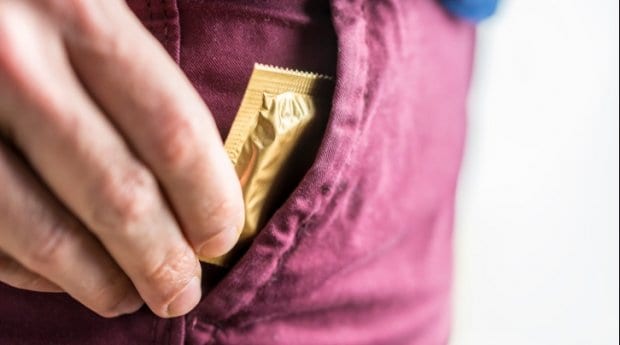Ottawa Public Health has withdrawn an advertisement after it attracted criticism for using language that some have called “HIV-phobic.”
The ad was intended to target gay men and encourage safe sex and condom use. It shows a section of man’s face along with the tagline, “Was he lying when he said he was clean?”
Pam Oickle, manager of the city’s healthy sexuality and risk reduction unit, says the advertisement was ordered to be immediately pulled from Daily Xtra’s on Feb 27 after complaints were raised that its wording further stigmatized individuals living with HIV.
The ad also included a link to the website for the health agency’s Sex It Smart campaign, an ongoing initiative that seeks to encourage young people between the ages of 15 and 29 to practice safe sex.
Oickle confirms that the ad — one of five produced almost four years ago as part of the Sex It Smart campaign — will be permanently scrapped, but says its focus was on halting the spread of sexually transmitted diseases by encouraging condom use, not raising awareness about HIV/AIDS testing.
“It is not an HIV ad, it never was,” she says, noting that this is the first time it or any of the campaign advertisements has attracted such criticism. “It’s really unfortunate that it was kind of taken out of context because it was not ever determined or published as being an ad around HIV.”
Oickle notes that all of the ads and their taglines were designed by youth in Ottawa, including some members of the city’s gay community.
The ad initially prompted some second-guessing from the public health agency, which opted to take it back to the youth advisory committee who designed it, she says.
The committee, however, once again approved it, according to Oickle, who adds that the public health agency is always conscious about reactions to its advertising.
The uproar on social media seems to have been prompted by a tweet from AIDS activist Michael Burtch that questioned Daily Xtra’s decision to run what he termed an HIV-phobic advertisement.
Others soon responded on Twitter to say they also interpreted the ad as being a public service announcement about getting tested for HIV. Most expressed similar concerns about using the term “clean” to designate individuals who are not living with HIV or AIDS.
Jeremy Dias, founder of Jer’s Vision, says the implication seems to suggests those who are HIV-positive are dirty, which he describes as being “very stigmatic” to those living with the disease.
“It also continues to marginalize, disrespect and discriminate against people who are HIV-positive,” he says. “Moreover, it shuts down dialogue on the issue.”
Dias, though, applauds the quick response to the controversy by Ottawa Public Health and says the conversation about the ad has led to a “discussion to better develop advertising and messaging moving forward.”
He says he looks forward to “continuing that dialogue, opening it to the community, and engaging with everyone in creating messaging successful, respectful and responsible.”
Khaled Salam, executive director of the AIDS Committee of Ottawa (ACO), says usage of the term clean remains troublesome as it can negatively imply that people living with HIV/AIDS are somehow dirty, as well as add to the HIV stigma that already exists.
“The words clean and dirty should not be associated with someone’s health status,” he notes.
Salam also applauds the prompt reaction from Ottawa Public Health, an ACO partner, and says he understood that the ad was not HIV-specific.
“Ottawa Public Health was very responsive to the reaction to this ad, and was very open and receptive to the concerns raised by community members, and consequently removed the ad,” Salam says, adding that he understands the ad was “geared towards youth and raising awareness around chlamydia, gonorrhoea and unintended pregnancies.”


 Why you can trust Xtra
Why you can trust Xtra


